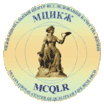E.В V. Sevostyanova, Yu.В A. Nikolaev, V.В Ya Polyakov, I.В A. Rylskaya
FEDERAL RESEARCH CENTER FOR FUNDAMENTAL AND TRANSLATIONAL MEDICINE, NOVOSIBIRSK
The presence of multiple comorbid pathology, polymorbidity, is a characteristic feature of arterial hypertension (AH), which significantly aggravates the course of diseases, complicates diagnosis and treatment. The most important psychosocial factors influencing the occurrence and development of cardiovascular pathology are anxiety and depression. However, their relationship with the formation of polymorbidity, as well as their impact on the quality of life in patients with hypertension, is poorly studied. The aim of the study was to study the relationship between anxiety and depression and indicators of polymorbidity and quality of life in patients with АН. Examination of 70 patients with hypertension of stage II–III, men and women with an average age of 60,5±1,3 years was carried out. The patients underwent examination at the clinic of the FRS FTM, Novosibirsk. The patients were divided into groups depending on the presence or absence of anxiety or depression. The Hospital Anxiety and Depression Scale (HADS) was used to assess levels of anxiety and depression. The presence of anxiety or depression was considered when the total indicators on the HADS scale were more than 7 points. Polymorbidity was assessed by the number of nosologies corresponding to the International Classification of Diseases (ICD-10) in one patient. The assessment of the quality of life was carried out using the questionnaire MOS SF-36. An increase in polymorbidity in patients with AH in the presence of depression was revealed. A comparative analysis of indicators of the quality of life in hypertensive patients, depending on the presence or absence of anxiety, revealed a significant decrease in the indicators of role functioning, general health, mental health, as well as the resulting mental component of health in hypertensive patients with anxiety. A comparative analysis of indicators of the quality of life in hypertensive patients, depending on the presence or absence of depression, revealed a significant decrease in the indicators of role functioning, general health, role emotional response, mental health, and integral components of physical and mental health in hypertensive patients with depression. The presence of depression is significantly associated with the severity of polymorbidity in AH patients. The presence of anxiety or depression significantly reduces the main components of the quality of life in hypertensive patients, which requires their timely assessment and correction.





